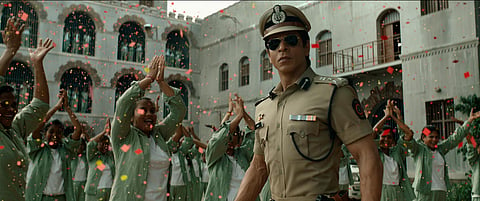‘Jawan’ treads with caution in an India on edge
Days before the release of Jawan, the new Hindi blockbuster starring Shah Rukh Khan, a trailer for the film was shared on social media. As the video showed the name of one of the film's producers, Gauri Khan, a voiceover by Shah Rukh, her superstar husband, drawled, "Bete ko haath lagaane se pehle baap se baat kar" (Before you touch the son, deal with his father). Simultaneously, the trailer cut to visuals of Shah Rukh himself.
This was as meta as cinema can get. Aryan Khan, Gauri and Shah Rukh's son, was arrested in Mumbai in 2021 on drug-related charges that the authorities ultimately failed to prove. That did not stop a media circus around the case, with Shah Rukh's name often at the centre of it. Critics of India's Hindu nationalist Bharatiya Janata Party (BJP) government expressed the belief that the arrest was meant as punishment for Shah Rukh, whose religious identity as a Muslim combined with his public image as a liberal have long riled BJP supporters. For viewers convinced of this reasoning, the trailer was Shah Rukh's message to those who had struck at his family.

